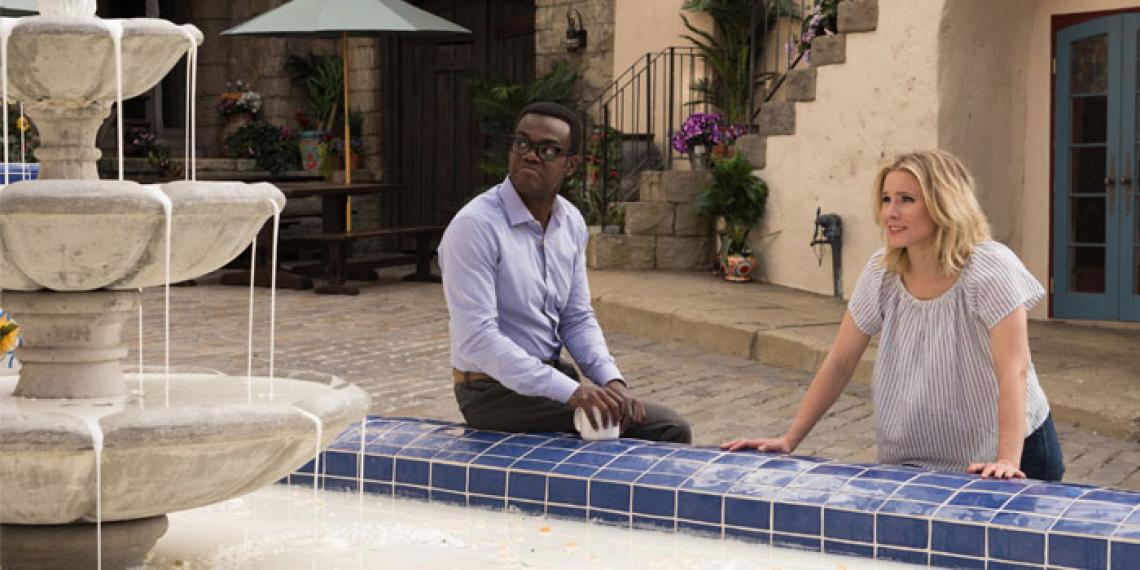You are here
The good place

Some topics make for great television, others … not so much. Eternal damnation isn’t usually associated with entertainment or comedy—but Netflix has done both with its award-winning show The Good Place.
Eleanor Shellstrop (Kirsten Bell) wakes up in the afterlife and meets Michael (Ted Danson) who announces that she is in ‘the good place’— a Heaven-like elysium he designed, in reward for her righteous life.
The problem is it’s a case of mistaken identity and she should have been sent to ‘the bad place’. Eleanor must figure out how to become a good person, without getting exposed as a fraud. Eleanor enlists the help of Chidi, a professor of moral philosophy, who is matched as (the real) Eleanor’s soulmate.
Chidi begins to teach Eleanor ethics and they both quickly realise this is not going to be easy. Every person on earth is awarded points based on all the good or bad activities they do. We soon learn that Eleanor’s score was over 4000 bad points. She definitely deserved to be sent to the bad place—each legitimate resident of ‘the good place’ had an average of one million good points.
This show isn’t so much a commentary about heaven and hell, but about grace versus works, and whether people are inherently good or bad. Eleanor is trying to tip the scales—hoping each good act will cancel out one bad one. But there is no room for repentance, no accounting for a changed life—unless you manage to live on the ‘right side of the line’ long enough to build up enough good credit.
This pseudo-heaven operates from a works-based, grace-stripped environment—so very different from the environment of heaven that we believe in as Christians.
The Good Place is highly entertaining and gives people the opportunity to dialogue about those things rarely talked about in the lunch room—life-after-death, what it means to live a good life, and whether God is real.
Christianity Today captured one of the great elements of the show. ‘The Good Place treats everyday decisions of Eleanor’s—how she speaks about people, behaves in the yogurt line, does or doesn’t do her share of the chores—as moments that matter.’
And isn’t that an important way to view our life? That each interaction, each action is a moment that matters—not because it adds or subtracts from our tally to get into heaven—but because it reflects what we believe and who we believe in.
God is the opposite of a cosmic good/bad calculator. He is a God of forgiveness and grace, who wants a personal relationship with each of us.
Spoiler Alert: According to The Good Place we will be able to fly in heaven and eat any flavour of frozen yogurt whenever we want—yes and amen!
by Shar Davis (c) 'War Cry' magazine, 24 February 2018, pp3 - You can read 'War Cry' at your nearest Salvation Army church or centre, or subscribe through Salvationist Resources.